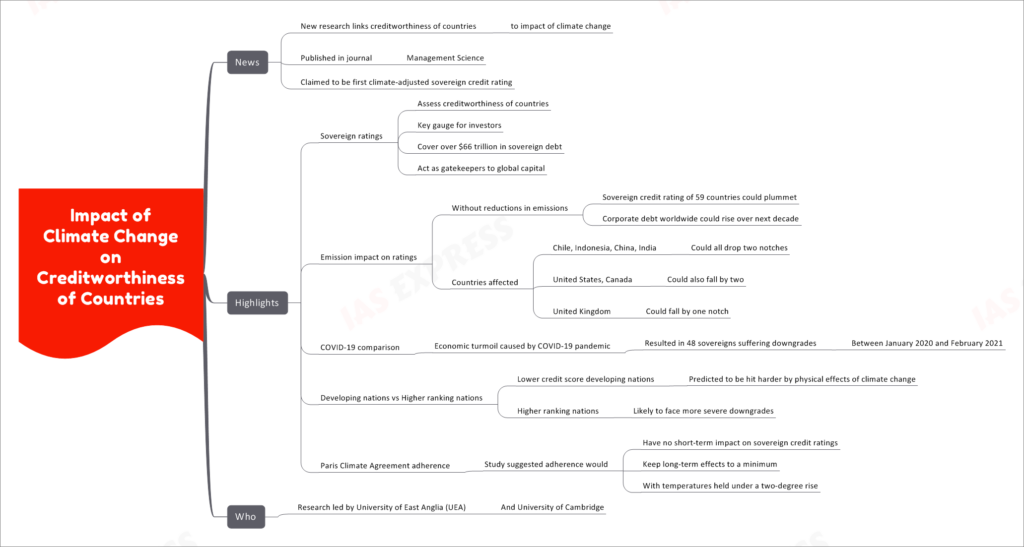Impact of Climate Change on Creditworthiness of Countries

A research published in the journal Management Science has shed light on the connection between climate change and the creditworthiness of countries. For the first time, researchers have introduced climate-adjusted sovereign credit ratings, revealing the potential consequences of climate change on global financial systems.
Sovereign Ratings: A Key Gauge for Investors
Sovereign ratings play a vital role in assessing the creditworthiness of countries and act as gatekeepers to global capital. These ratings cover over $66 trillion in sovereign debt and serve as a crucial reference point for investors and lenders.
Emission Impact on Ratings: Dire Consequences Without Reductions
The research highlights that failing to reduce emissions could lead to significant declines in sovereign credit ratings for numerous countries. Specifically, if emissions remain unaddressed, the credit ratings of 59 countries could plummet, with corporate debt worldwide potentially rising over the next decade. Among the countries at risk, Chile, Indonesia, China, and India could face a two-notch drop in their ratings, while the United States, Canada, and the United Kingdom could also see a two-notch downgrade.
Comparison with COVID-19 Economic Turmoil
Drawing a comparison with the economic turmoil caused by the COVID-19 pandemic, the study found that 48 sovereigns experienced downgrades between January 2020 and February 2021. This highlights the severity of the potential impact of climate change on countries’ creditworthiness.
Developing Nations vs. Higher Ranking Nations: Varied Vulnerabilities
The study predicts that lower credit score developing nations are likely to be hit harder by the physical effects of climate change. In contrast, higher ranking nations may face more severe downgrades due to their exposure to climate-related risks.
Paris Climate Agreement Adherence: Long-Term Benefits for Credit Ratings
Encouragingly, the study suggests that adherence to the Paris Climate Agreement would have no immediate impact on sovereign credit ratings. However, it could minimize long-term effects if global temperatures are successfully held under a two-degree rise.
The Research Team
The research leading to these crucial findings was conducted by the University of East Anglia (UEA) and the University of Cambridge. Their collaborative efforts have provided valuable insights into the intersection of climate change and global financial stability.
If you like this post, please share your feedback in the comments section below so that we will upload more posts like this.

